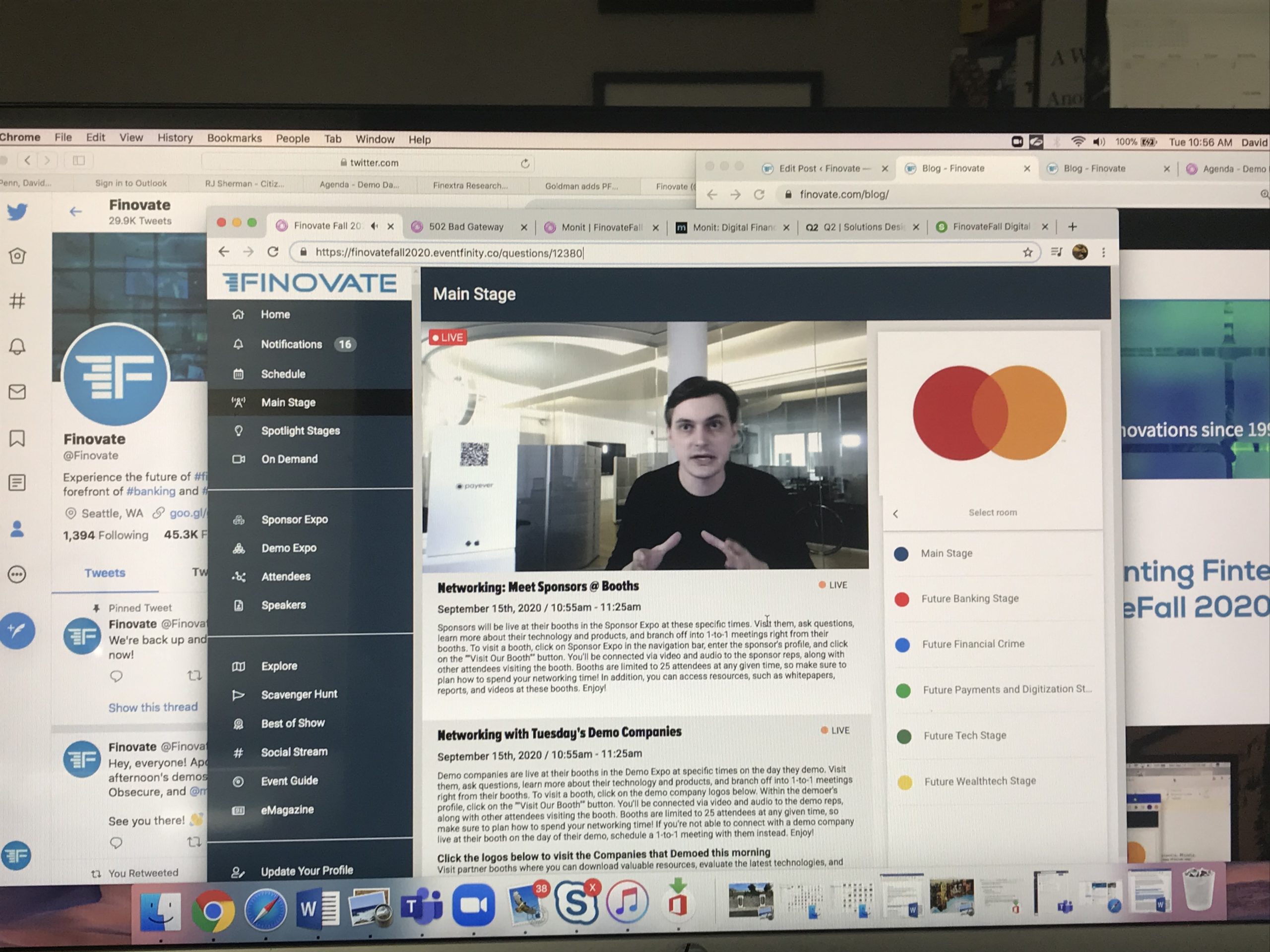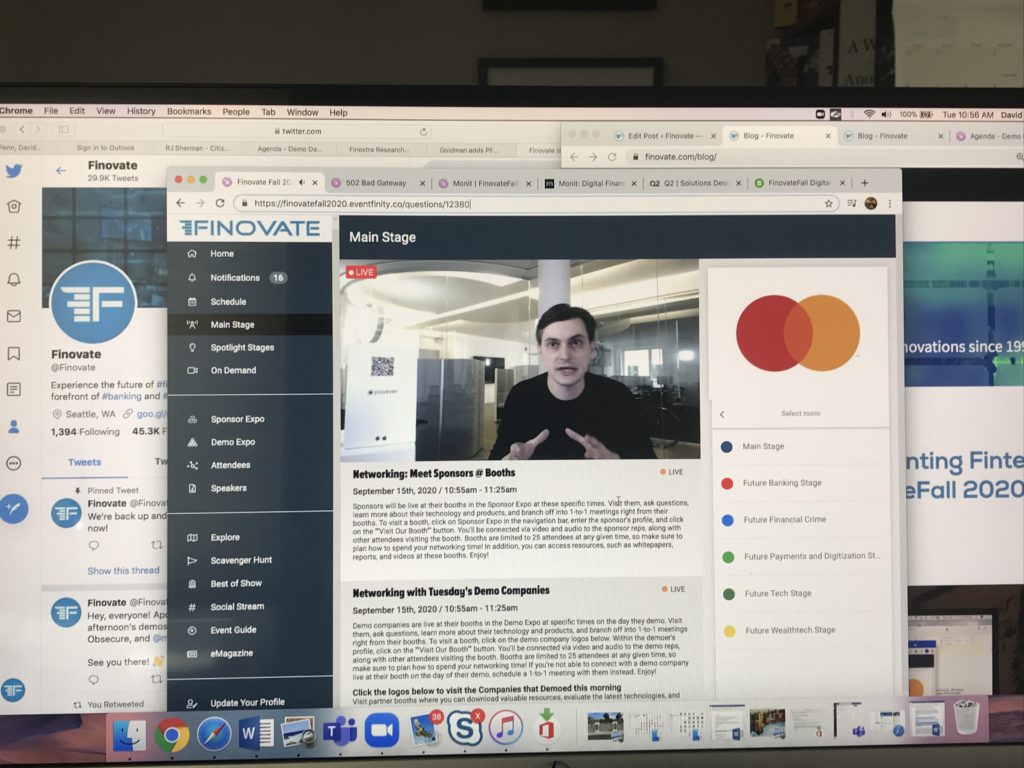
Below is a guest post from Shubhradeep Nandi, co-founder and CEO of PiChain.
The current pandemic has brought the whole world to a standstill and created grave economic issues. The finance and banking sectors have slowly started to experience the tremors, too. With almost all sectors struggling to keep up in these economic conditions, all eyes are on financial sectors who are the drivers of the economy; it is only them who can prevent an economical holocaust. According to research from Wakefield Research and Concur, almost 84% of small businesses rely on manual processes for most of their work. Being one of the sectors that still needs a lot of manual work, the financial institutions need to bring significant changes in their operations to keep up with the new rules of social distancing.
How is COVID affecting the financial industry?
Various companies across different sectors are trying to avoid a situation of bankruptcy, there is very little that the banking and financial industry can do to help. Several companies have opted for employee layoffs and change in investment strategies with the aim to survive this crisis. In spite of all the crisis, digitization is the only way the whole of the finance industry can get back on its feet and start controlling the economy again. But the banks cannot opt for these options as they have to deal with a fall in demand, lower income, and production shutdowns.
Given the current pandemic situation, a transition to the digital world was very inevitable for the finance and banking sector. The pandemic gave a boost to digitization which led to more and more people engaging in digital and online banking. The finance industry has undergone a digital revolution. Banks and financial institutions who are head-on entering the financial market with digital platforms are experiencing an increase in profitability and market share.
Customers have already adopted digital means for performing various transactions. Fintech is becoming increasingly common as a majority of financial institutions find themselves using technology to advance their services. New technologies are extensively being implemented in the finance sector. Cloud computing, Big Data analysis, machine learning, artificial intelligence, blockchain etc., which were exposed to a fraction of players in this particular sector, are slowly starting to spread their reach bringing a large number of institutions under their umbrella. The increased security practices in the digital payment sector are also making the digital finance industry more and more appealing.
Increase in risk exposure due to the pandemic
According to FinScan’s May 2020 report, those professionals dealing with anti-financial crimes like auditors, regulators, compliance professionals etc. are finding it hard to keep the financial crimes under control. This has led to an increase in the overall risks of money laundering, compliance and other financial frauds. Among the main reasons to fuel the sudden increase in compliance risks is the “remote working” policy. This has resulted in a lack of monitoring systems and proper digital connectivity leading to minor disruptions in working schedules. Moreover, most employees have an inadequate IT structure to carry on full-fledged work. There were a lot of security risks involved as the systems were moved out from state-of-the-art firewall securities in the office to the basic securities of personal networks.Â
Another commonly heard reason is that, like all other industries, the financial industry was also not ready to roll out online in such short notice. In an industry where even today most work happens manually, there was a huge gap created when, all of a sudden, they were forced to get all their operations to perform digitally. This created a lot of opportunities for criminal masterminds to install backdoors and capitalize on this opportunity. Thus with an increase in cybercrimes, the risk of non-compliance increased as well. The drastic shift of a majority of the customers to digital transactions provided a safe haven for hackers to monitor transactions and perform data breaches. It has also become very difficult for the compliance and regulations department to monitor activities because of scattered data and disruptions in the overall working network of the organization.
Dealing with the growth in compliance risks
With all fields of technology advancing to help other industries, many fintech and regtech firms have come up with automated compliance and risk management solutions. Even though these solutions are state-of-the-art, tech companies mainly focus on the technical and security aspect of it. This is indeed necessary because of the ginormous amount of data on the web; most tech companies can’t deliver on the level of regulations and compliance that needs to be followed by the financial institutions. However, regulations and compliance being the two most important aspects of any financial organization, these finance companies have to look towards those handfuls of fintech companies who deliver both on the technical and finance regulations aspect. These firms leverage regulatory technology to monitor and regulate compliance laws and lead the company to a steady rise in the market.
Looking toward a post-COVID world
The world getting back to normal may be difficult and changes made during COVID-19 will slowly become the new normal. The finance industries will continue to face major challenges unless companies have deployed thought- through and well-defined resilient strategies. Regulators will need to be able to track every transaction being made. Customers will want every transaction quicker and safer. Thus, an effective sustainable digital governance, due diligence and compliance management with risk assessment strategy would be of great value to the BFSI sector.
The sector, with the help of its employees, would need to redo their relationship with customers and provide assurance in terms of service. Evolution to meet changing socio-economic conditions is the prime need of the sector which can only be bolstered with strategic digital transformation.
Shub, co-founder & CEO of PiChain, is a serial entrepreneur who is passionate about business growth. On a quest to achieve sustainable compliance for 500 Entities by 2025, he has 10+ years of experience in building and selling software for finance and regulatory compliance management. At PiChain, Shub provides organizational leadership with his unique combination of business understanding and technical acumen.
Photo by Sharon Snider from Pexels
































